Polarisation, disinformation, trust: do young French people think like…
Past event In person

- Area of Expertise
- Democracy
Democracy
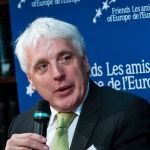
Senior Fellow for Peace, Security and Defence at Friends of Europe, and former Deputy Assistant Secretary General for Emerging Security Challenges at the North Atlantic Treaty Organization (NATO)
Of late, I have become rather pessimistic about the health of democracy in Europe – and the United States too, if we stop to think that an avowed Trump supporter who proclaimed that the 2020 election had been stolen could have become the Speaker of the House of Representatives, the third highest position in the US Constitution. Although populists in power have failed in their campaign promises to stop illegal migration, expel migrants already within their borders, clean the rubbish off the streets, halt corruption or restore their countries to their former national glory, they continue to get elected.
The latest example is Slovakia, where the populist leader of the Direction – Social Democracy (SMER) party, Robert Fico, has just made a political comeback despite a poor record of government riddled with scandals the last time he was in power from 2006 to 2010 and from 2012 to 2018. Fico campaigned on a platform of halting military assistance to Ukraine, opposing Kyiv’s membership of NATO and the EU, stopping migrants and putting Slovaks first. Hopes that the opposition led by Progressive Slovakia could keep Fico out of power by forming a multiparty coalition were dashed when Fico rapidly put together his own coalition with the nationalist Slovak National Party (SNS) and centre-left Voice – Social Democracy (HLAS) parties. In Türkiye, a six-party opposition alliance failed to unseat President Recep Tayyip Erdoğan despite an initial lead in the opinion polls. In Germany, regional elections in two Länder (Hesse and Bavaria) saw a comeback by the far-right Alliance for Germany (AfD) and opinion polls showing an increasing number of Germans – as many as 40% – holding far-right views. Perhaps the only ray of light occurred in Spain where a poor showing by the far-right Vox party made it nigh impossible for the conservative Popular Party (PP) to replace the left-wing coalition led by Pedro Sánchez despite getting the most votes in national elections.
At the same time, authoritarians have been entrenching themselves in power for the long run. This normally becomes possible after their third electoral victory, giving them well over a decade in power, time enough to hollow out the institutions of democracy, fill the courts with their cronies, corrupt the rule of law, staff the public administration with loyal followers irrespective of qualifications and competence, muzzle the independent media and stamp their opponents as the unpatriotic stooges of Brussels, Berlin or Washington. We have certainly seen this process follow its sad course in Hungary under the one-man rule of Viktor Orbán and his Fidesz party, and Erdoğan’s re-election in Türkiye now gives him the chance to do the same. The pro-Kurdish People’s Democratic Party Party (HDP) has already been harassed for years and its leader, Selahattin Demirtaş, put in prison. Türkiye is also the country in the world that locks up the most journalists. Following a bomb attack outside the Turkish Parliament in Ankara recently, Erdoğan has been back to his usual policy of whipping up nationalist sentiment against the Kurds. The Turkish Air Force has been carrying out strikes in northern Syria and Iraq against Kurdistan Workers’ Party (PKK) targets. Orbán’s enemies, by contrast, do not require kinetic operations. They are more in the form of Brussels bureaucrats holding him to account for EU agricultural subsidies or members of the LGBTQIA+ community demanding recognition of their status and protection of their rights. But he denounces them with equal virulence.
The EU has been a convenient scapegoat for PiS to use – as is the case in Hungary and elsewhere in central and eastern Europe
It is with the Hungarian and Turkish models of creeping authoritarianism in mind that many EU observers looked at last Sunday’s national elections in Poland with considerable anxiety. Pro-EU and liberal Poles spoke of a ‘1989 moment’ when the future direction of the country would be decided for generations, similar to the collapse of communism at the end of the Cold War. The ruling Law and Justice party (PiS), which was started in 2001 by the Kaczyński twins, Jarosław and Lech, was going for its third electoral victory. To the consternation of the EU institutions in Brussels and many liberal, cosmopolitan Poles, PiS has increasingly tried to reshape Poland in its own political and ideological image as a conservative, Catholic nationalist country determined to right historical wrongs and eliminate every vestige of communism even when it took a more modern, liberal and reformist character. Thus, anyone with a communist past, no matter how tenuous or transactional, could lose a state job in, for example, education or municipal administration.
Billions of euros were demanded of Berlin in reparations for World War Two destruction even though Germany believed that it had settled the Polish claims in the 1950s and the looting of Poland by the Soviet Union during the war and for years afterwards was just as great. Paris, although a traditional ally of Warsaw, was sidelined because of President Macron’s advocacy of EU strategic autonomy, which Warsaw saw as threatening the primacy of NATO. Poland cancelled a deal for French military helicopters and turned to the US instead. Yet it was what it did on the home front that worried the liberals. PiS forcibly retired a number of judges in the Supreme Court, arguing that they were communist holdovers but creating the suspicion that this was all about reducing the independence of the judiciary by packing the court with party loyalists. Thus began several rounds of tug of war between Warsaw and the then vice-president of the European Commission, Frans Timmermans, over invoking Article 9 of the EU Lisbon Treaty to suspend Poland from voting rights and EU regional and structural funds because of its failure to agree on a satisfactory roadmap to secure judicial independence. PiS wanted to appoint the judges itself, whereas the EU wanted Poland to establish an independent judicial review commission to vet the merits and integrity of the candidates. Even today, years later, Poland has still not managed to tap into the billions of euros allocated to it by the European Commission under the NextGenerationEU recovery plan for long-term investment in green and sustainable energy and infrastructure. Part of the opposition Civic Coalition’s (KO) appeal in last week’s Polish elections was that, because of its close ties to Brussels, it will be better placed to convince the Commission to disburse the funds.
Yet there have been other concerns too. PiS has put its trusted supporters into all the key levers of power, especially the civil service and the heads of state-owned companies, of which there are many in Poland compared to the EU average. The main state TV channel TVP has become the veritable mouthpiece of the ruling party. When Donald Tusk – the Polish prime minister between 2007 and 2014, former EU Council president and now head of the KO party – led a million-strong people’s demonstration in Warsaw two weeks before the election, the state TV listed it 19th on the reports of the evening news bulletin. TVP has engaged openly on the side of PiS in the campaign, accusing KO of abandoning Poles to destitution when it was in government and of presenting ‘convulsions’ rather than clear policies in the election campaign. TVP gives the opposition leaders only 10% of the time it gives to government spokespeople, according to surveys. Reporters Without Borders now ranks Poland 58th in the world for media freedom, whereas it was 18th in 2015, the year PiS took power. The Polish government has been steered from behind the scenes by the unelected Jarosław Kaczyński since his twin brother, Lech, was killed along with a number of ministers and generals in an air crash near Smolensk in Russia in April 2010. They were on their way to a commemoration of the 1941 Katyn massacre of Polish army officers by Stalin’s NKVD secret police. Kaczyński has always considered that the crash was not an accident but the result of deliberate sabotage by Moscow. Since losing his brother, Kaczyński has steered PiS in an increasingly reactionary direction. Abortion rights were dramatically scaled back in a 2021 law to be the most restrictive in the EU, only being allowed in cases of rape and incest, despite protests from women that went on for several weeks in Poland’s major cities. LGBTQIA+ rights have also been frowned upon and government messaging has suggested that this community is somehow a threat to Polish society. The EU has been a convenient scapegoat for PiS to use – as is the case in Hungary and elsewhere in central and eastern Europe – blaming it for trying to impose ‘un-Polish and alien’ values on Polish society, as well as unacceptable quotas of migrants from Muslim countries as part of its proposed Pact on Migration.
PiS, to its credit, has been a strong supporter of Ukraine and absorbed one million refugees from Ukraine since Putin’s invasion and been a major deliverer of weapons and training, including setting up factories in Poland to repair damaged tanks and armoured personnel carriers. Yet, mindful of the need to always be seen as defending Polish interests and not wanting to alienate Polish farmers ahead of the elections, it banned on two separate occasions the import of Ukrainian grain. Although initially intended only for transit to other markets, some of this grain was remaining in Poland and depressing agricultural prices. This decision started a rare public spat between Warsaw and Kyiv, leading the Polish Prime Minister Mateusz Morawiecki to declare somewhat sensationally that Poland would halt future arms deliveries to Ukraine and concentrate on equipping its own army instead.
Dismantling the PiS system in the civil service, education, media and industry will also not be easy and will take time
In addition, the government has carried out a re-organisation of electoral districts to promote the representation of the countryside at the expense of the major cities, which tend to vote for the opposition. Much of the support for PiS comes from the more conservative rural areas, but also from the working class, which appreciates the generous welfare benefits, such as pensions and child allowances, that the government has specifically targeted at this social category. Strong Polish economic growth in recent years and major infrastructure investments financed by the EU after Poland’s accession in 2004 have helped to finance all this welfare spending. Under PiS,Poland has progressed to become the EU’s sixth largest economy; but that achievement is now coming under strain as the government is committed also to spending 4% of its GDP on defence – the highest percentage in NATO – and has signed multi-billion arms deals to buy US Abrams tanks, F35 aircraft and Patriot air defence batteries, as well as deals with South Korea for fighter jets and armoured personnel carriers. Inflation has also taken off, undermining the effect of the welfare benefits.
Given this context, many Poles in the ranks of the opposition as well as international observers were doubtful that PiS could ever be driven from power. It had tilted the electoral playing field too much in its favour for that to be possible. So, the results of Sunday’s election have come as a pleasant surprise and welcome indication of the underlying health and resilience of Polish democracy. Certainly, as expected, PiS emerged as the largest party with 35% of the votes, but well down on its usual score of over 40%. KO received 31% and its coalition partners, the centre-right Third Way and the New Left, 14% and just under 9% respectively. Ahead of the elections, a new party had emerged on the far-right, Confederation, which opposes further military assistance to Ukraine. The challenge from Confederation pulled PiS further to the right and led it to sharpen its rhetoric against Kyiv to prevent a haemorrhage of voters. Yet, Confederation polled only 7% of the votes so PiS cannot stay in power by forming a coalition with it. It may hope yet to get the support of the farmers’ party, Polish People’s Party (PSL), which went into the election as part of the Third Way group. But so far this party has repeated its opposition to PiS. All told, the winning coalition now has 248 seats in the Sejm, which should allow it to govern comfortably.
Despite the jubilation in Polish liberal society and the relief in Brussels that the prickly, uncooperative government in Warsaw may soon be gone – thus sparing the EU a constitutional crisis around the invocation of Article 9 and sanctions against one of its own member states – it will not be all plain sailing for Tusk and the new coalition. President Andrzej Duda, a PiS politician, will give the initial mandate to try to form a government to PiS, which is technically the winner of the elections with the most votes. This party will “not go quietly into the dark night”, to use the phrase of the poet, Dylan Thomas, and will undoubtedly try to make life as difficult as possible for its opponents. It may try to use the Electoral Commission and Supreme Court to dispute election results and delay the transfer of power. As elsewhere in Europe and the US, Polish society is deeply polarised. The new coalition will have to agree on a common programme. Dismantling the PiS system in the civil service, education, media and industry will also not be easy and will take time. So too will sorting out all the problems in the judiciary. The EU funds are unlikely to flow for some time, as the new government will want to have its say on the projects for funding that Poland is putting forward.
Moreover, introducing new laws on abortion rights or the protection of the LGBTQIA+ community will be a delicate issue in a deeply conservative, Catholic society, as will the new government’s stance on migration. Already there are differences in the coalition on abortion reform with KO and New Left favouring a ban after 12 weeks of pregnancy, while the more conservative Third Way supports abortion only in case of foetal defects and has proposed a referendum on the issue, which is bound to be difficult and divisive. There will probably be problems with the Constitutional Court, packed with PiS loyalists, who might attempt to hold up or block new legislation. To help balance the books, the new government may also need to resile on the commitment to raise defence spending to 4% of GDP and cancel, or at least scale back, some of the big weapons contracts, which is not good news for the US or NATO. Yet, support for Ukraine will continue and Poland’s anchorage in NATO, the EU and the West will remain solid. The economy demands attention as foreign investors have pulled $2.3bn from domestic government bonds since July and their share of domestic bonds now stands at only 15% – the lowest in decades. No big changes are to be expected in foreign policy, except perhaps a much friendlier attitude towards Paris and Berlin and more tolerance for Macron’s views on EU strategic autonomy and Thierry Breton’s projects to boost European technology and defence industry cooperation using EU funding. Poland participates in some of these EU capability development programmes already but could become more involved.
This brings us to the fundamental question: how was it possible to defeat the populists when they try to rig the system in their favour and don’t play by the democratic rules? Which lessons are there here for other EU countries where populists are also planning long stays in power?
In first place, it is to have a united opposition front behind a clear leader who has the stature and authority to take on the populists. In Poland, this was helped by the fact that there was no Orbán or Erdoğan at the head of the government and the leader of PiS, lurking in the political background, was the distinctly uncharismatic Kaczyński. The opposition had Tusk, a personality of international standing, making it difficult for PiS to impugn his credibility or portray him as a lightweight or a loser. Türkiye here offers a useful contrast, where the six-party coalition was constantly bickering. They failed to reach out to the pro-Kurdish HDP party, thereby failing to attract the all-important vote of the country’s sizeable ethnic Kurdish minority. A major opposition party, the Good Party, quit the coalition and subsequently returned but its leader, Meral Akşener, made clear that she was unhappy with the choice of the uncharismatic, multi-time election loser, Kemal Kılıçdaroğlu, to lead the campaign. The mayors of Istanbul or Ankara, held by the opposition, would have been more popular choices and helped to fire up a lacklustre and complacent opposition campaign.
The next key is to have a savvy campaign platform that rallies your own natural supporters while also allowing you to appeal to the base of support of the populists. Opposing every policy of populist parties is rarely a recipe for success. Here, KO drew a clear red line vis-à-vis PiS when it came to individual freedoms, such as abortion rights, LGBTQIA+ protection and freedom of the press. It made clear its commitment to the norms and values underpinning the EU. Yet it was careful to maintain a commitment to welfare spending and was cagey on the issue of migration and opening the doors to large numbers of illegal migrants being resettled from Italy or Greece. It fought hard in its communications to counter the PiS accusations that it was a party of the educated, wealthy, urban and cosmopolitan elite remote from the daily reality of the average Pole. So, KO deliberately targeted working-class voters, particularly their worries over inflation and falling living standards, making them feel that it was safe to vote for change. KO was also able to hammer home its messaging regarding the shortcomings of PiS, especially regarding corruption and cronyism. Getting the campaign strategy and messaging right and sticking resolutely to that message are the key to success. It is essential to base the campaign on themes that ‘cut through’ to the average voter rather than focus on issues that, no matter how worthy, come across as elite special interests.
The Polish case shows that there is a way to beat the authoritarian populists
In third place is to have access to the mainstream media . Authoritarians like to dominate the airwaves and push the opposition off TV and into the niche communities of the social media. Yet in Poland, in addition to the state-controlled TVP, there is also a private channel, TVN, owned by Warner’s Discovery Channel in the US. Attempts by PiS in the past to muzzle this channel through the imposition of fines or other restrictions have come to naught due to the opposition of the US, an important ally that PiS has been loathe to upset. Access to this private channel has helped KO to compete for attention with PiS, particularly among the older, rural voters who get their news and information primarily from TV rather than by surfing the Internet or dialling up X or watching podcasts on YouTube. Fortunately, in Poland many high-quality independent newspapers have been able to survive both government pressure and the meltdown in advertising revenues. There is also the other private TV channel, Polsat News, and the popular radio station RMF FM. This diversity of platforms has helped the opposition too. Clearly, preserving an independent media space thathas sufficient national outreach to cut through to the average voter is vital for preserving democracy. This was definitely the case in the US where the independent networks played a crucial role in pushing back against Trump’s attempts to falsify the election results and in exposing all his innumerable lies and false claims.
The fourth element is to get your supporters out to vote and mobilise them with the sense that the coming election is make-or-break for the future direction of their country – but that they can also win. This is what the government of David Cameron and George Osborne in the United Kingdom miserably failed to do when they lost the Brexit referendum by 52% to 48% in 2016. Many EU supporters in the UK, complacently anticipating a ‘yes’ vote to remain in the EU or others less sure after a lacklustre, confusing government campaign about what the benefits of the EU actually were, chose to stay at home. Consequently, the outcome of the referendum did not actually reflect the mood of the country. The minority mobilised more successfully than the majority and this is always a failure in any viable democracy. By contrast, KO was able to fire up its base with big campaign rallies, generating enthusiasm for the election and a sense of the high stakes involved. Instead of staying in their beds, young Polish voters queued to vote in Wroclaw until three in the morning. Polling stations had to stay open late to allow everyone to cast their ballots. Electoral participation, at 74 %, was the highest since the end of communism in 1989 when it reached 65%.
Finally, outside pressure. Populists love to show their supporters that they are standing up to bullying Brussels and defending the national interests. Hungary’s Orbán has made a career out of doing precisely this, justifying his country’s need to maintain its close energy relationship with Russia and trying to put the brake on further EU sanctions. This tactic certainly works with some voters. Yet the Polish case shows that many, even in the populist ranks, do not want their country to be at permanent war with the EU and be deprived as a result of many of the economic benefits of EU membership. They do not want their country to be isolated or be seen as a perpetual troublemaker and disrupter. The Polish election shows that a policy to mend fences with Brussels and normalise relations can win broad support among voters. Yet for this strategy to work the EU must be united and serious about imposing penalties on those who break its rules or undermine its core human and social values. So, the EU institutions and member states need to resolutely resist the well–known siren calls that getting tough on a recalcitrant populist government will only make its population more anti-EU. Poland shows that standing up for your values is the best way to get support for them. Once populations realise that it is their own government and not Brussels that is being uncooperative and therefore responsible for the breakdown, scapegoating the EU becomes much more difficult. For this strategy to work, the EU must not just threaten to impose costs and sanctions but show that if negotiations and appeals to reason fail, it will actually do so. This is a test of wills and the game of chicken and who will blink first. So, the long engagement of the EU Commission with Warsaw over judicial reform and human rights has certainly paid off in the end. Polish voters have said ‘enough is enough’.
Of course, Poland is Poland. Its specific political environment will not be exactly replicated in other EU countries, nor in the US as it moves towards crucial presidential and legislative elections in November next year. However, the Polish case shows that there is a way to beat the authoritarian populists and make them follow the constitution and the ground rules of the separation of powers in any healthy democracy. No doubt, KO in Poland will become tired and complacent after its next stretch of governing Poland. The coalition will become fractious, there will be the usual scandals along the way and the Polish electorate will come together in deciding that it is once again time to ‘turn the rascals out’. As the British 19th century liberal philosopher, Jeremy Bentham, famously said: “the price of democracy is eternal vigilance”. But KO has won a well deserved and clever victory, which gives all European democrats a shot in the arm. So let us allow it to savour the moment and enjoy its return to government. There will be time and opportunity enough for we armchair pundits to criticise it in the years ahead. After all, that is what the game of democracy is all about.
The views expressed in this #CriticalThinking article reflect those of the author(s) and not of Friends of Europe.
Past event In person

Past event In person - Prato, Italy

Past event In person

Past event In person, Berlin
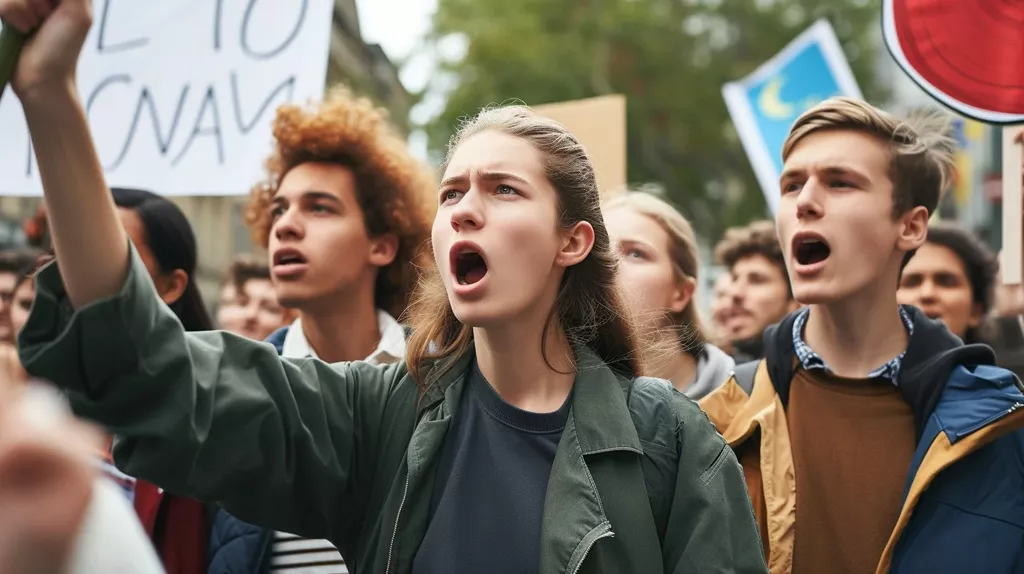
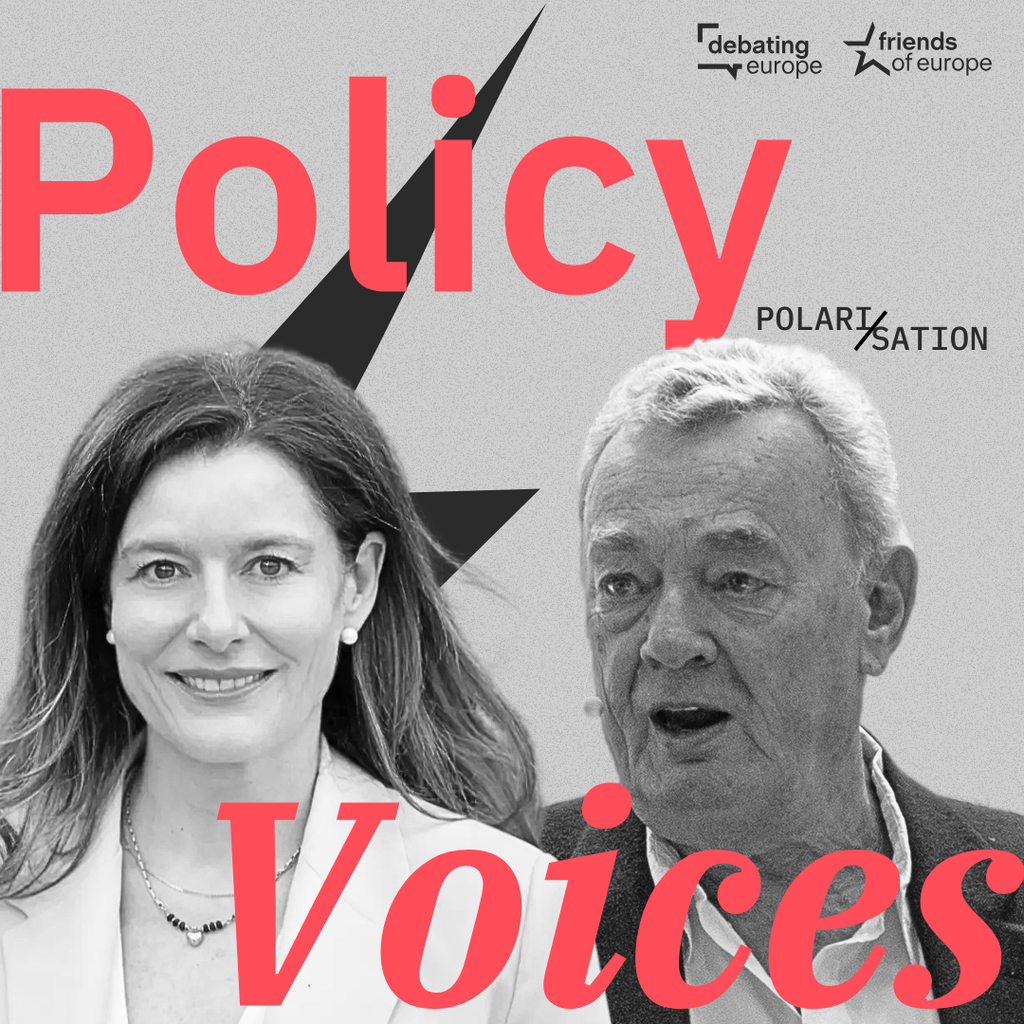
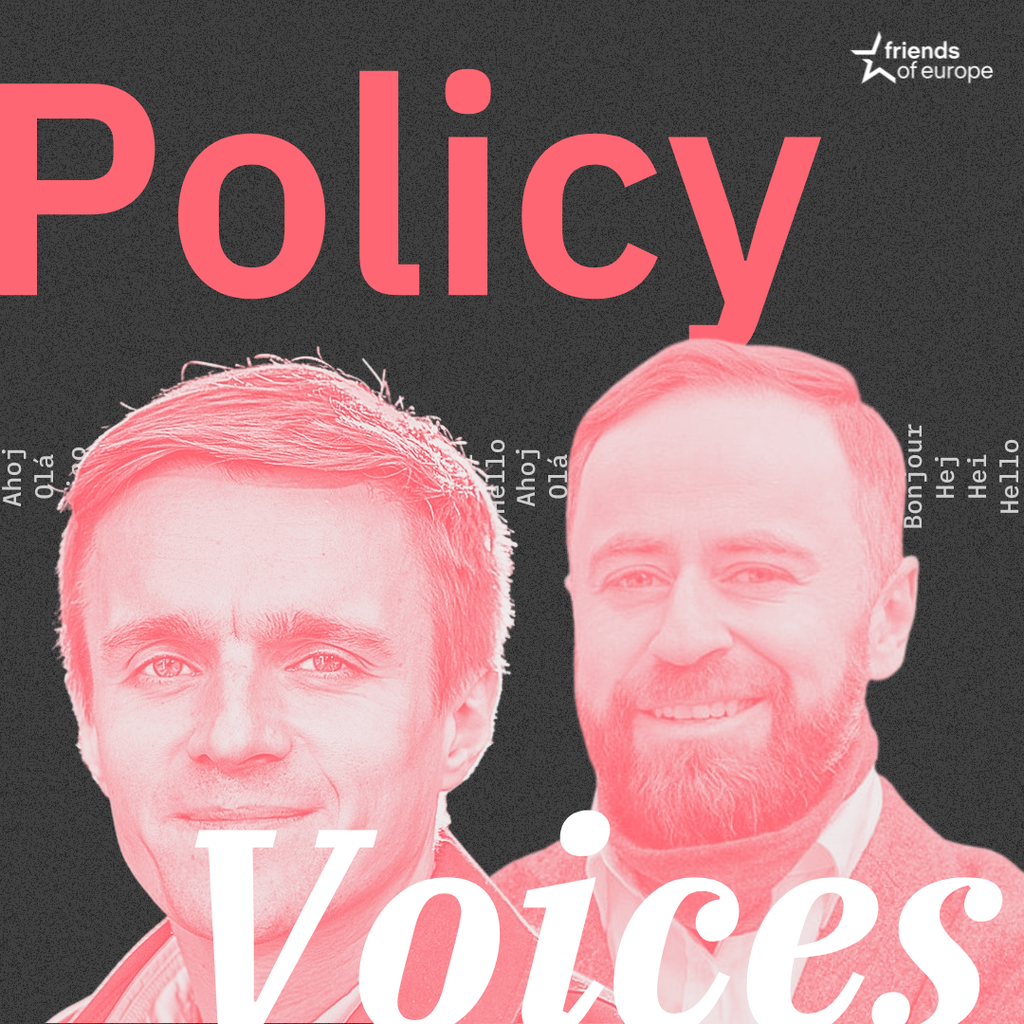
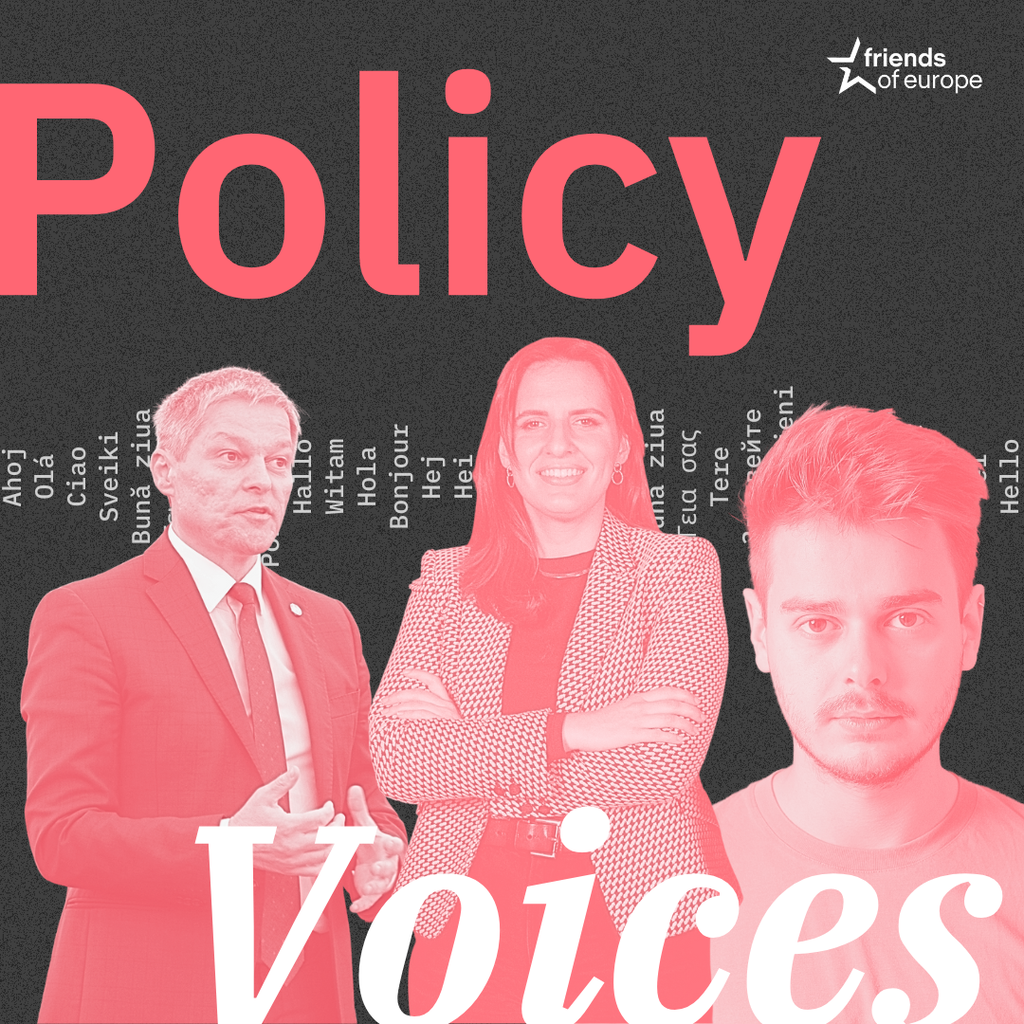
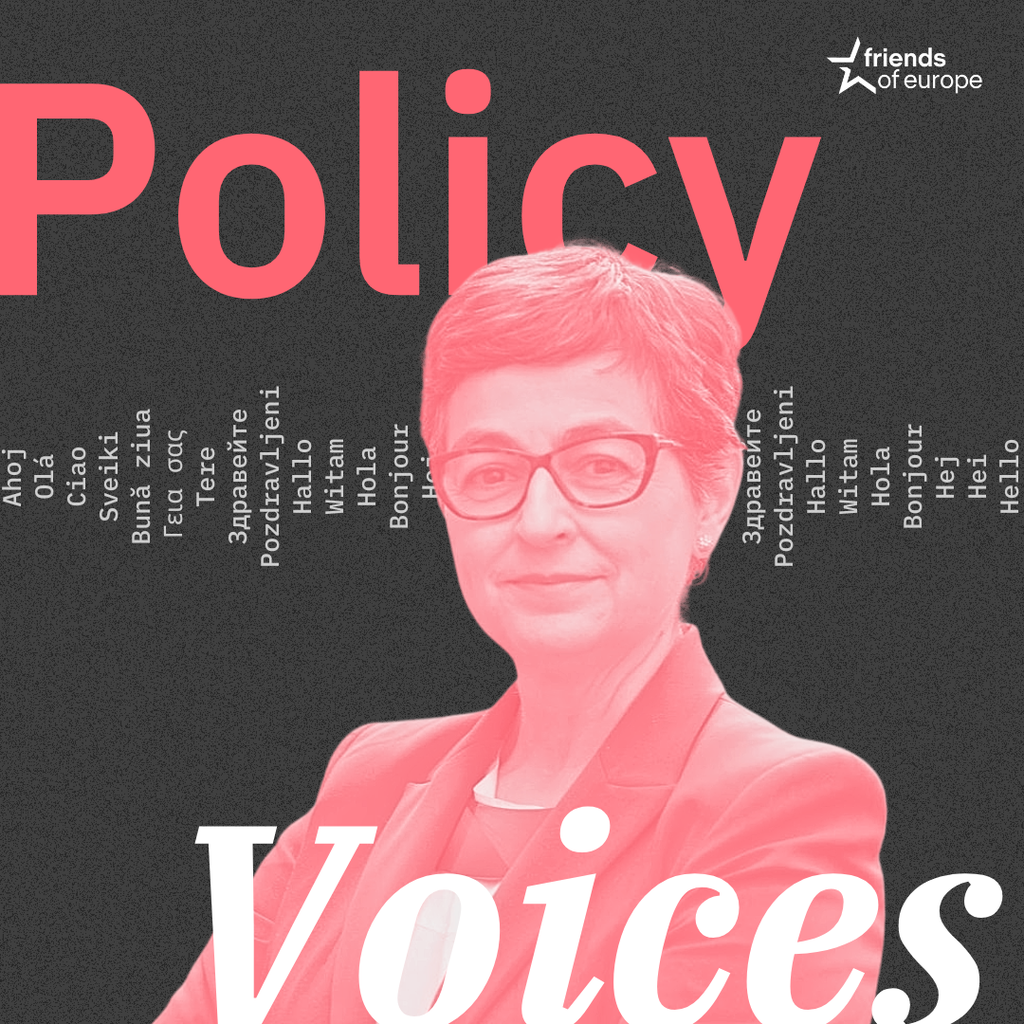
Stay informed
We use cookies and similar technologies to adjust your preferences, analyze traffic and measure the effectiveness of our campaigns. Learn more about our privacy policy.